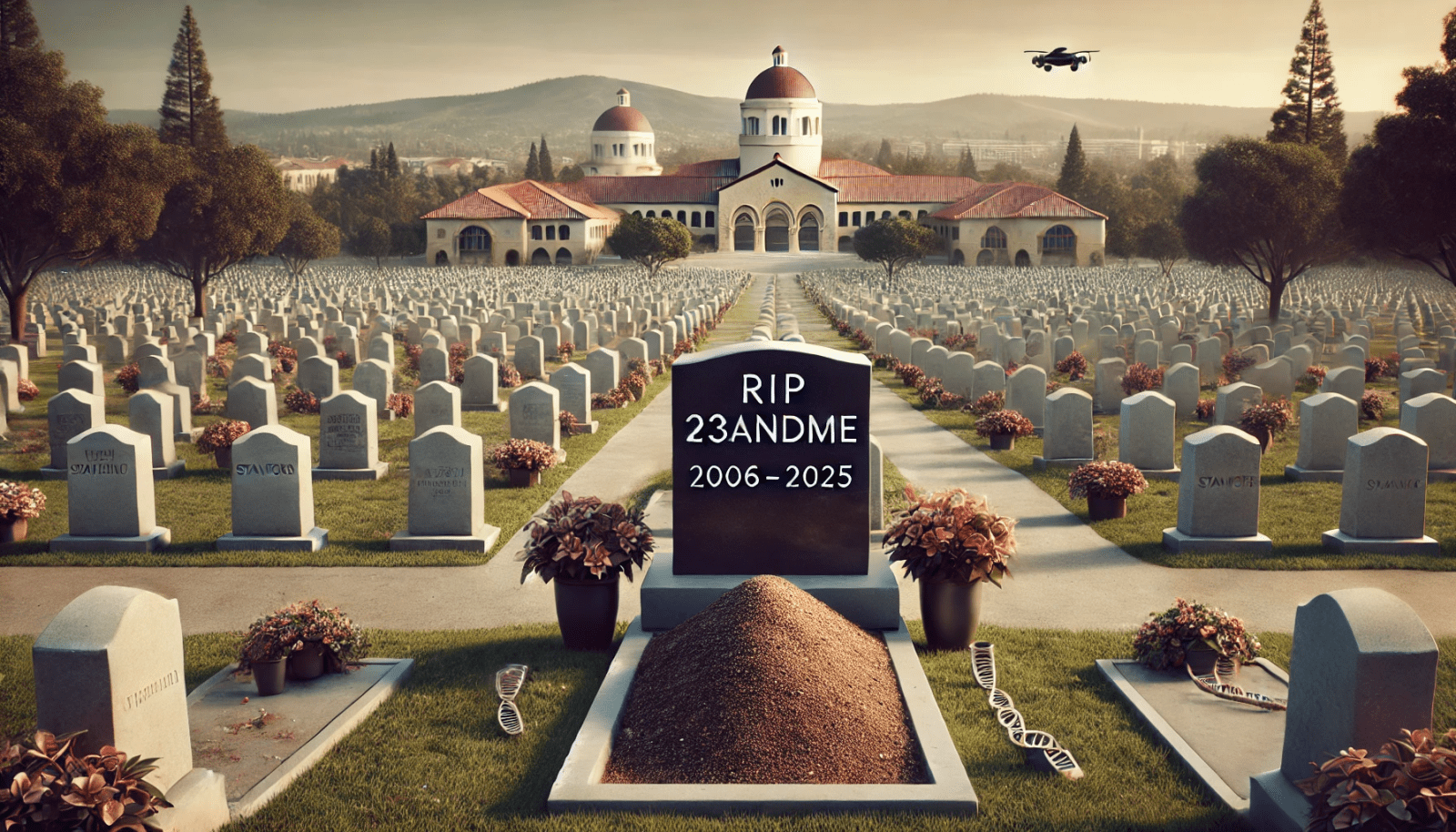
The bankruptcy of 23andMe, while anticipated by some, still comes as a shock. Yesterday, Anne Wojcicki—founder, CEO, and former wife of Google’s Sergey Brin—announced the company will undergo Chapter 11 bankruptcy proceedings and that she is stepping down as CEO. In her statement, she acknowledged the pioneering role 23andMe played in human genotyping, citing achievements such as 15 million users and over 250 published research papers. Despite these milestones, the company is now shutting its doors.
Founded in 2006, 23andMe quickly became a Silicon Valley darling. Their $99 direct-to-consumer test analyzed genetic polymorphisms—small differences in the genome—to reveal simple traits like eye color and determine ancestral origins, such as Finnish or Neanderthal lineage. The kits rapidly gained popularity, with “spit parties” where people eagerly submitted saliva samples becoming a trend. 23andMe kits became fashionable holiday gifts. In rare but powerful cases, some users discovered biological parents or children.
However, the utility of the tests proved limited. Because the samples weren’t connected to health records, and due to regulatory caution, 23andMe refrained from providing health-related information. I found my personal experience underwhelming—my ancestry was vaguely categorized as “Eastern European”, because of lack of founding populations in the 23andMe database. Most of my newfound “fourth cousins” never replied to my outreach. Ultimately, the experience was a one-time curiosity for many.
Yet, human genomics as a field is far from fading. Today, instead of analyzing limited sets of polymorphisms (SNPs), companies like Nebula Genomics offer whole-genome sequencing (WGS)—a comprehensive blueprint of an individual’s DNA. These reports now include health-related insights and disease predisposition probabilities, although much of this data remains clinically inconclusive.
The real progress lies in the clinical application of genomics—especially in oncology. Companies like Foundation Medicine, founded in 2010, developed panels of actionable mutations tied to specific cancer phenotypes. This data empowers doctors to personalize treatments and enables insurance coverage. Pharmaceutical companies also use this genetic information as biomarkers in drug development. Roche recognized the value and acquired Foundation Medicine in 2013 for $2.5 billion. Another leader in clinical genomics, Caris Life Sciences, currently holds a valuation of approximately $8 billion.